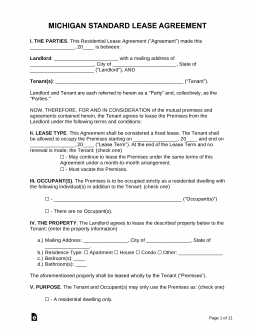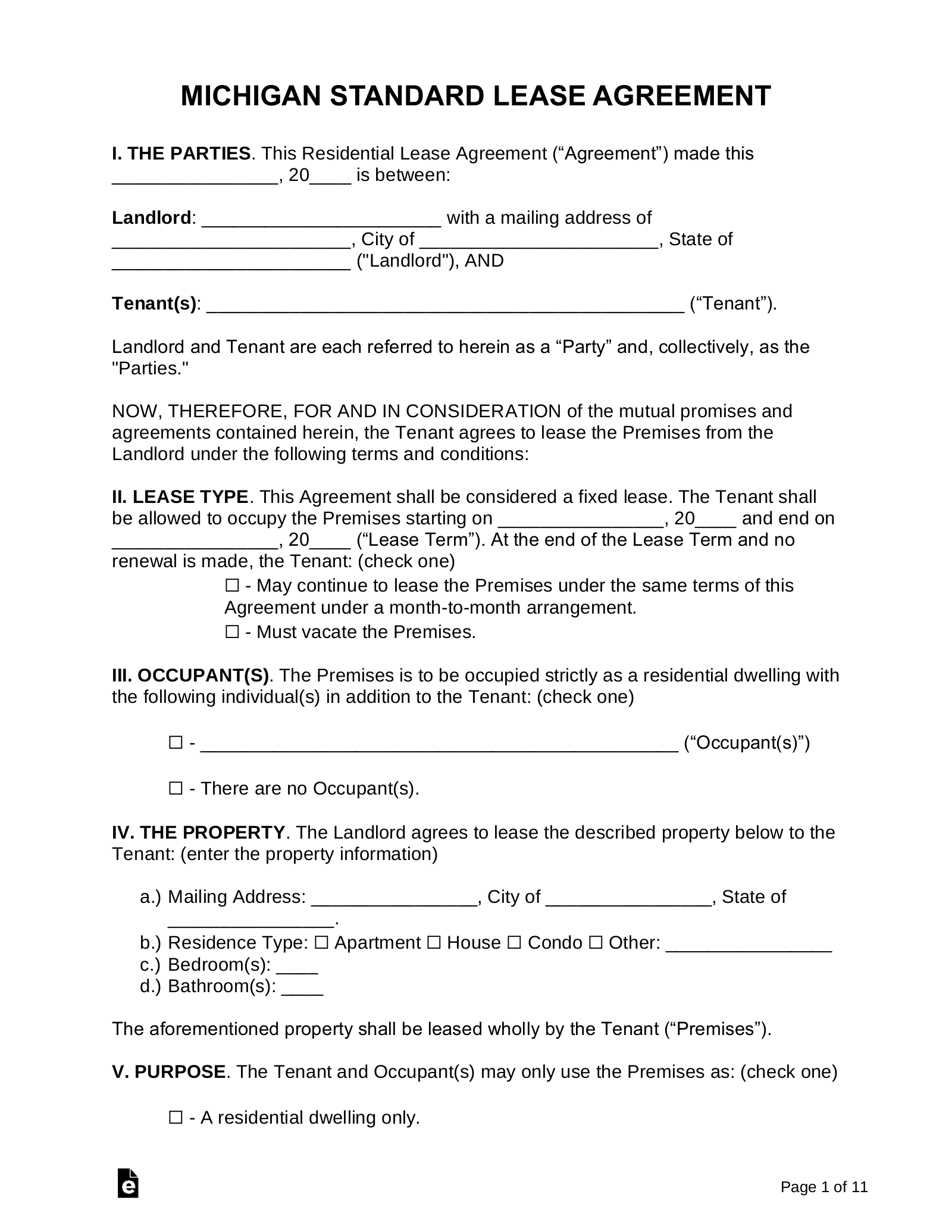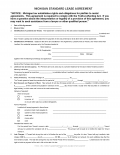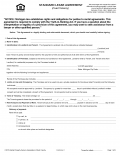Updated August 07, 2023
A Michigan standard residential lease agreement is a document that legally binds a landlord and tenant into a rental contract. The landlord agrees to lease the property while the tenant agrees to occupy and pay rent on a monthly basis. A landlord will usually request to verify the tenant’s credentials through a rental application before signing an agreement. After approval, the parties will negotiate and authorize the terms of a lease.
Laws – Chapter 554 (Real and Personal Property)
Handbook – A Practical Guide for Tenants & Landlords (PDF)
Other Versions (3)
Property Owners Assoc. of Kent County
Download: PDF
Download: PDF
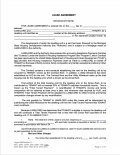 Michigan.gov Lease for Section 8 Tenants
Michigan.gov Lease for Section 8 Tenants
Download: MS Word

